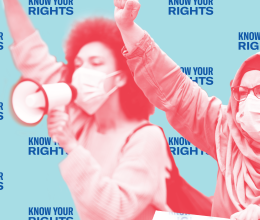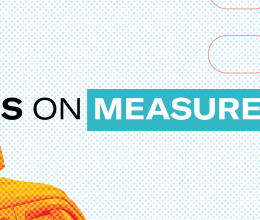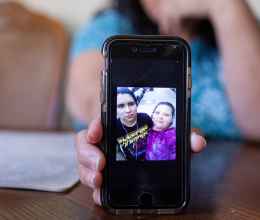
ACLU lauds decision as major victory for equality
LOS ANGELES – The American Civil Liberties Union of Southern California (ACLU/SC) today applauded an appeals court decision allowing public universities and public employers in Michigan to continue to use affirmative action to ensure a diverse student body and workforce. The 2-1 decision strikes down a 2006 amendment to the state constitution, which, similar to California’s Proposition 209, prohibited all affirmative action policies.
The federal lawsuit was filed in 2006 on behalf of 18 students, faculty and applicants to the University of Michigan by a coalition of civil rights organizations that includes the ACLU of Michigan, Detroit Branch NAACP, the New York law firm of Cravath, Swaine and Moore, NAACP Legal Defense and Education Fund, Michigan State Conference NAACP, and the national ACLU.
The coalition had asked the three-judge panel to reverse a lower court’s decision and strike down Proposal 2. The groups argued that the ban unconstitutionally discriminates against students of color by removing race from consideration in admissions, while allowing the consideration of virtually all other non-academic factors.
In its 59-page decision, the court agreed with the coalition stating that Proposal 2 violates the Equal Protection Clause of the U.S. Constitution by creating a double standard in university admissions that hurts people of color.
According to the opinion: “Ensuring the fairness of political processes, in particular, is essential, because an electoral minority is by definition disadvantaged in its attempts to pass legislation; and ‘discrete and insular minorities’ are especially so given the unique hurdles they face. Ensuring a fair political process is nowhere more important than in education. Education is the bedrock of equal opportunity.”
Since the passage of Proposal 2, published reports from the University of Michigan have found that the number of African-American, Hispanic and Native-American students enrolled in the freshman class at the university has declined by 11.4 percent. Many students, according to the universities’ records, are choosing to go elsewhere where public and private institutions are not banned from offering aid based on race, ethnicity or gender.
"Today's ruling helps us all to move forward in our efforts to fulfill the promise of equal education that the Court set in motion nearly 50 years ago,” said Mark Rosenbaum, Chief Counsel for the ACLU/SC, who argued the case. “Moreover, the decision affirms that a robust and wide-open political process where every voice is entitled to be heard is the linchpin of our democracy. Prop 2, like its clone Prop 209, recognizes that racial identity is part of the American story, and that there can be no such thing as true diversity where a state treats race as irrelevant. If California is our nation’s melting pot, race cannot be factored out as if it were irrelevant,” added Rosenbaum.
This was the second major lawsuit addressing affirmative action at public universities in Michigan. In the first, Grutter v. Bollinger and Gratz v. Bollinger, the U.S. Supreme Court held that it is constitutionally permissible for universities to consider race and gender as one factor among many in university admissions. Moreover, the Supreme Court has explained that a state law violates the Equal Protection Clause when it makes it more difficult for certain racial minorities than for other members of the community to achieve legislation that is in their interest.






